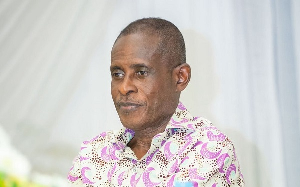It is gradually becoming manifest that the West African sub-region, which hitherto was a relatively peaceful enclave as far as acts of terrorism are concerned, has suddenly been cast into a ‘war zone’ by recent happenings.
This transition has not been unexpected by practitioners in the field of international security, especially since the sordid attacks in France in November 2015.
Indeed, our own authorities in the field of international relations and security, including Vladimir Antwi-Danso and Kwesi Aning (I assume all titles), have been sending early warning signals of the worrying possibility of major hits within the sub-region.
Aning for one has posited severally that the West African sub-region has become the new frontier and battleground for those who want to send a clear signal of the hopelessness of efforts to constrain and constrict terrorist acts to neglected parts of the geo-spatial divides of this world.
He also argues convincingly that jihadists, for example, want to use West Africa as the zone of contention for the purpose of asserting their superiority and dominance at the top of the scale of radical groups in the aftermath of the fragmentation and dispersion that have followed the demise of the first wave of radical leaders and of centralised terrorist authority.
New Types, Old Wars
It was Professor Mary Kaldor of the London School of Economics who espoused the idea of ‘new wars’ as a classification of what we now call terrorism to describe the rigid and uncompromising principle that underpinned the resort to instil fear, panic and hatred within societies of the terrorists’ own choosing; that they are uncompromising is seen in the extent to which they have carefully woven a complex vortex of radical 9th Century type Islamists, shadowy international money launderers, 77 virgin-desiring mercenaries and those who believe that chaos, anarchy and disorder is the biggest service they can render unto mankind in the 21st century.
So intricate is this web and so resolutely uncompromising their hidden support base, that many a security and intelligence expert is at pains to make an accurate prediction of the next place of attack, the form it would take, the implements to be used and the likely level of casualties of such an act.
There is no gain saying that just as there are those who pliantly fall for the antics and trickery of man-to-snake-to-lion-to-goat and back to human turning charlatan pastors, so also is there an abundance of sympathisers of the causes for which terrorists claim to fight – as to offer them succor, support and many a time, free passage and launch pads to undertake their anti-human activities. For these ones, it matters not if their own relatives would be caught in the cross-fire: ‘Allah has willed it and so must it be’.
Reality
It is the aftermath of a successful terrorist act and the anguish that is splashed before our eyes thanks to both mainstream and new (social) media that gives them a jolt of reality that indeed, every single rule subscribed to by the entirety of civilisation in the form of the Four Geneva Conventions (1949) and their additional Protocols of 1977 are being flouted, with a temporary forcible exiling of the principle of jus cogens as far as the right to life is concerned.
Without this jolt of reality, the post-facto effort to piece the scattered strands of vital information together is almost always bound to hit a lurch, for, no successful terrorist act is possible without that key factor of human agency: an immigration officer who scrutinises entrance and exit documentation with keen disinterest, an overenthusiastic hotel worker who gives more than necessary information about the key crowd-pulling events of his workplace, a checkpoint duty officer who is more interested in reporting to the deadly occupant of the car under inspection how the ‘boys are on duty’ and a money transfer operator whose interest remains in the huge profits he can extract from the rather unusual amounts being withdrawn by the customer with an unusual accent.
This combination of ‘slips’ together then provide the pillars upon which the purveyors of doom and gloom flourish and unleash their special brand of international attention-seeking measures on innocent souls whose only crime is to be at the right place at the wrong time.
The success or failure of terrorist groups depends on this: anytime fear, panic and hatred is instilled in a people as to shy away from their usual places of interest, crowded places and the like, the terrorist win for, with no effort but the spectre of fear, they reconfigure the organising principles of any society; when they succeed in putting our entire security network on heightened alert, the terrorists pat themselves in a congratulatory frenzy.
But is this sustainable and how long shall we live in the shadow of the unknown deadly neighbour vis-à-vis our cultural mores of a so-called proverbial or traditional Ghanaian hospitality where open arms to foreigners is the norm rather than the exception?
Opinions of Friday, 6 May 2016
Columnist: Emmanuel Adumua-Bossman
Terrorising West Africa: A perspective
Opinions














